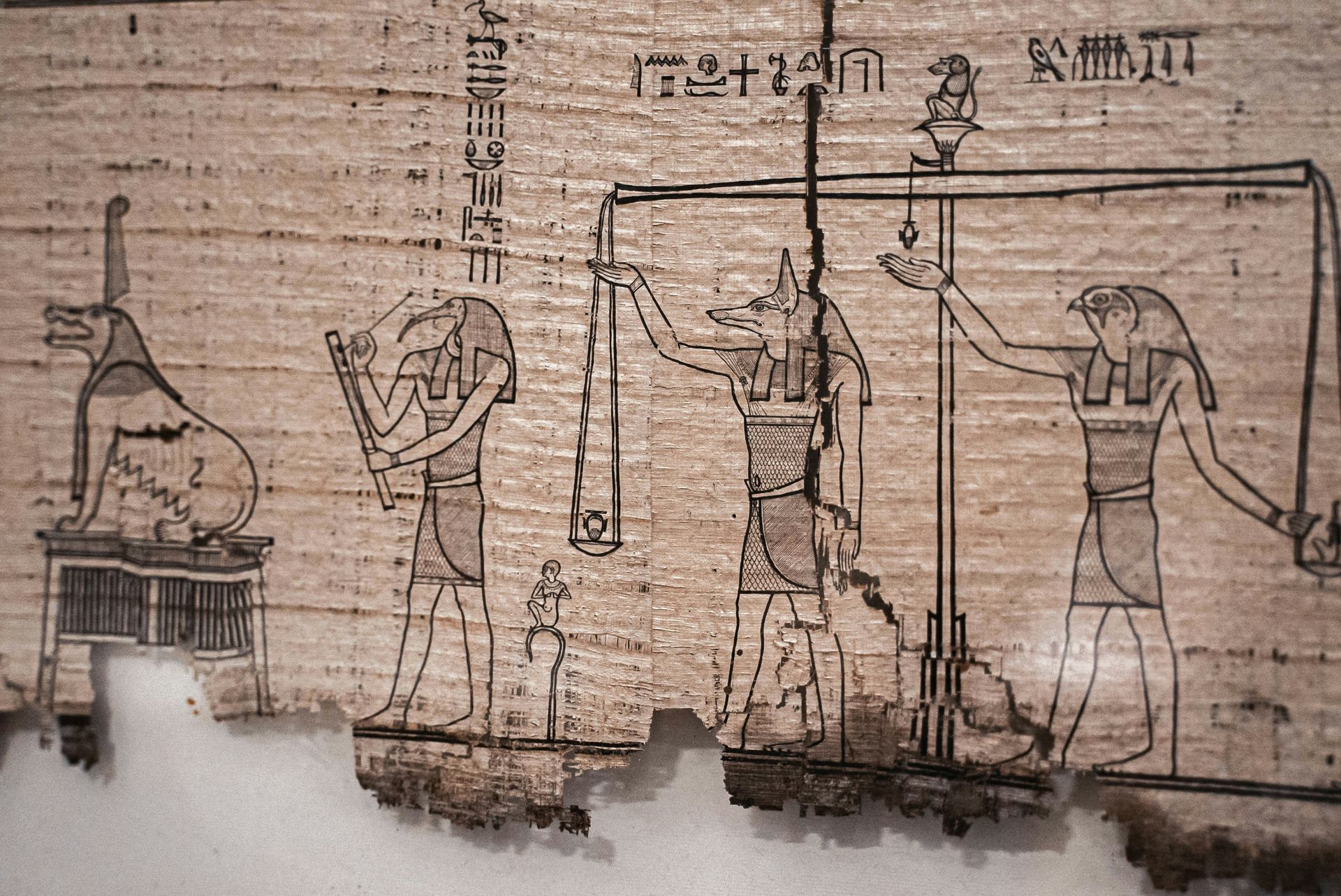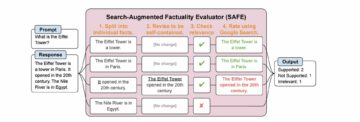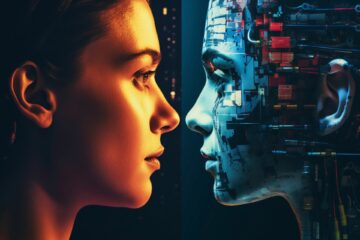The concept of interacting with loved ones who have passed away has long captured our imagination. From ancient Egyptians preserving their pharaohs in elaborate tombs to the modern fascination with near-death experiences, humanity has grappled with the idea of maintaining a connection with the departed.
Now, with the rapid advancement of artificial intelligence (AI), a new frontier has emerged: the creation of digital replicas of deceased individuals.
These digital recreations, sometimes referred to as “deadbots,” are built using a combination of text, audio, and video data from the deceased. This data can include social media posts, emails, voice recordings, and even home videos. AI algorithms then analyze this data to create a virtual representation of the person that can hold conversations, answer questions, and even generate new content in their likeness. The most popular tool out there is MyHeritage AI.
While the prospect of conversing with a digital version of a lost loved one may seem appealing, AI ethicists are raising concerns about the potential negative impacts of this technology. They argue that urgent regulations are needed to address the ethical and psychological implications of interacting with these digital doppelgangers.

The psychological impact of deadbots is under the microscope
One of the primary concerns surrounding deadbots is their potential to cause psychological harm to those interacting with them. The grieving process is complex and highly individual. Some users may find comfort in interacting with a digital replica of their loved one, particularly in the immediate aftermath of a loss. However, others may find the experience unsettling or even disorienting.
The ability of deadbots to mimic the personality and communication style of the deceased could create a sense of false intimacy. This could hinder the grieving process by preventing users from fully confronting the reality of their loss. Additionally, deadbots may raise unrealistic expectations about the nature of grief and recovery.
Furthermore, the possibility of deadbots being used to spread misinformation or manipulate users is a significant concern. The ability to generate new content in the likeness of the deceased raises ethical questions about the potential for deepfakes and other forms of digital deception.
Legal and ethical considerations of digital recreations
The emergence of deadbots also presents a range of legal and ethical considerations. Ownership of the data used to create a deadbot is a complex issue. Does the right to control this data belong to the deceased’s estate, or should it be left to the discretion of their loved ones? Additionally, questions arise regarding the potential for deadbots to infringe on the privacy of the deceased or even cause reputational harm.
The ability to manipulate and alter the personality of a deadbot raises questions about authenticity and consent. Should users be informed if they are interacting with a digital replica rather than a genuine recording of the deceased?
The potential for deadbots to be used for commercial purposes is a cause for concern.

Regulations on deadbots
The development of digital recreations of deceased individuals presents a unique set of challenges that require careful consideration. While the technology may offer some potential benefits, the potential for psychological harm, misinformation, and exploitation is significant.
AI ethicists are calling for the development of clear regulations to govern the creation and use of deadbots. These regulations should address issues such as data ownership, user consent, and the potential for commercial exploitation.
The development of deadbots is a reminder of the need for responsible innovation in the field of AI. As technology continues to advance, it is crucial to have open and honest conversations about the potential ethical implications.
Featured image credit: liuzishan/Freepik
- SEO Powered Content & PR Distribution. Get Amplified Today.
- PlatoData.Network Vertical Generative Ai. Empower Yourself. Access Here.
- PlatoAiStream. Web3 Intelligence. Knowledge Amplified. Access Here.
- PlatoESG. Carbon, CleanTech, Energy, Environment, Solar, Waste Management. Access Here.
- PlatoHealth. Biotech and Clinical Trials Intelligence. Access Here.
- Source: https://dataconomy.com/2024/05/09/ai-ethics-on-deadbots/
- :has
- :is
- 1
- 2%
- a
- ability
- About
- Additionally
- address
- advance
- advancement
- aftermath
- AI
- algorithms
- also
- alter
- analyze
- Ancient
- and
- answer
- appealing
- ARE
- argue
- arise
- artificial
- artificial intelligence
- Artificial intelligence (AI)
- AS
- audio
- authenticity
- away
- BE
- being
- believing
- benefits
- built
- by
- call
- calling
- CAN
- captured
- careful
- Cause
- challenges
- clear
- combination
- comfort
- commercial
- Communication
- complex
- concept
- Concern
- Concerns
- connection
- consent
- consideration
- considerations
- content
- continues
- control
- conversations
- could
- create
- creation
- crucial
- data
- deceased
- deception
- deepfakes
- Development
- digital
- discretion
- does
- Elaborate
- emails
- emerged
- emergence
- estate
- ethical
- ethics
- Even
- expectations
- experience
- Experiences
- experts
- exploitation
- false
- field
- Find
- For
- forms
- from
- Frontier
- fully
- generate
- genuine
- govern
- harm
- Have
- High
- highly
- hinder
- hold
- Home
- honest
- However
- HTTPS
- Humanity
- idea
- if
- image
- imagination
- immediate
- Impact
- Impacts
- implications
- in
- include
- individual
- individuals
- informed
- Innovation
- Intelligence
- interact
- interacting
- issue
- issues
- IT
- jpg
- left
- Legal
- Long
- loss
- lost
- loved
- maintaining
- manipulate
- max-width
- May..
- Media
- Misinformation
- Modern
- most
- Most Popular
- Nature
- Need
- needed
- negative
- New
- of
- offer
- on
- ONE
- ones
- open
- or
- Other
- Others
- our
- out
- ownership
- particularly
- passed
- person
- Personality
- plato
- Plato Data Intelligence
- PlatoData
- Popular
- possibility
- Posts
- potential
- presents
- preserve
- preserving
- preventing
- primary
- privacy
- process
- prospect
- psychological
- purposes
- Questions
- raise
- raises
- raising
- range
- rapid
- rather
- Reality
- recording
- recovery
- referred
- regarding
- regulations
- regulations Are
- reminder
- replica
- representation
- require
- responsible
- right
- seem
- sense
- set
- should
- significant
- Social
- social media
- Social Media Posts
- some
- sometimes
- spread
- style
- such
- Surrounding
- Technology
- text
- than
- that
- The
- their
- Them
- then
- There.
- These
- they
- this
- those
- to
- tool
- under
- unique
- urgent
- use
- used
- User
- users
- using
- version
- Video
- Videos
- Virtual
- Voice
- while
- WHO
- with
- worry
- zephyrnet












